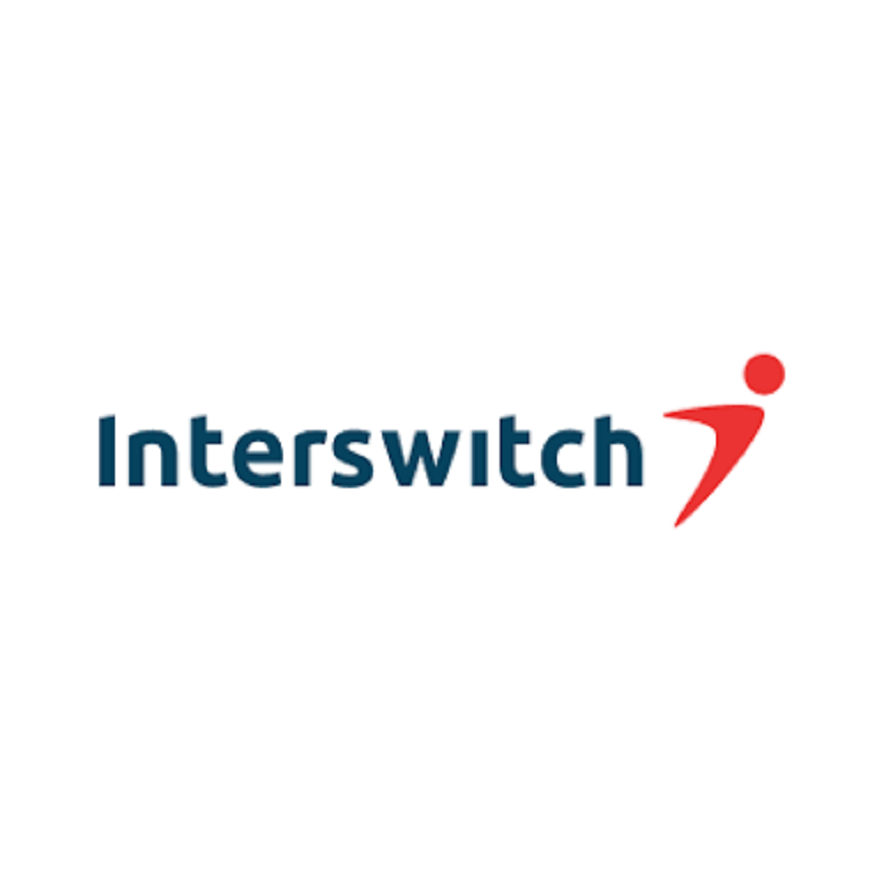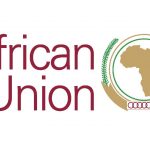Banking
Digital Banking Vital to Financial Inclusion in Nigeria—Segun Agbaje
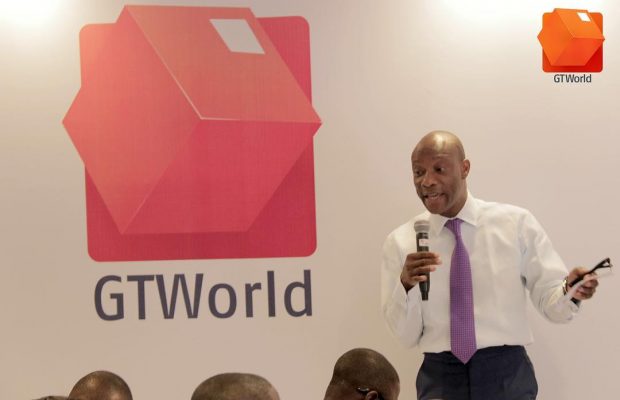

By Dipo Olowookere
Managing Director of Guaranty Trust Bank (GTBank), Mr Segun Agbaje, has emphasised the importance of digital banking in the growth of financial inclusion in Nigeria.
Mr Agbaje, speaking to World Finance, lamented that “there are so many people in Africa who are outside the banking system.”
He submitted that “for you to be part of organised society, financial inclusion is a must.”
GTBank, one of the continent’s leading financial institutions, is a big player in the mobile banking world, which is why it boasts of several customers.
The growth of financial institution is very slow in Africa, but it is predicted to rise.
“It’s not as superfast as we would like it to be, but there are marked improvements, and this is steadily increasing”, said Mr Agbaje, pointing out that, “Just 10 years ago, data on financial inclusion was hard to come by. Now we know just how much better we must do in order to expand access to financial services.”
But the Central Bank of Nigeria (CBN) has predicted that by 2020, the number of adult Nigerians with access to payment services will increase to around 70 percent.
Access to savings, credit, insurance and pensions is also growing rapidly.
“Encouraging as these projections are, we know that there’s a lot more to be done. This is why, at GTBank, we are keen to leverage digital technology to expand the reach of our products and services. Mobile has become very, very big and we have begun to see people doing a lot using their mobile phones.”
Mr Agbaje points to the example of Kenya’s M-Pesa, a mobile-based money transfer and finance platform that is now used by more than two thirds of the country’s adult population. The mobile app serves as a channel for approximately 25 percent of Kenya’s GNP. “When I look at our mobile technology compared to a lot of developed economies, I think we’re a lot further ahead. You know, I actually think that the African banking sector is very much ahead in terms of mobile banking. And I think African banks are probably embracing disruptive technologies a lot quicker, because we don’t have as many legacies.”
Making banking more mobile
This readiness to embrace new technologies has helped a large proportion of the African population skip whole stages of traditional digital development altogether. Indeed, for many, a smartphone is their first computer. Agbaje said: “From experience, we know that the major reasons for financial exclusion include the lack of physical access to financial institutions, inadequate understanding of financial institutions and their products, general distrust in the system, and the affordability of products as a result of minimum opening balance requirements.”
Despite these hurdles, technology is helping forward-thinking institutions tackle such challenges head on, prompting financial inclusion to leap forward on the African continent.
Mr Agbaje explained that, “The world is changing around us and the future of banking is digital. To protect our traditional business and maintain our social relevance, we are incorporating another model, which involves mobile phones, use of data, partnerships and collaborations. Simply put, we are creating a platform to support our traditional business model by leveraging digital solutions.”
GTBank’s Bank 737 provides banking services to millions of Nigerian mobile phone owners, and does not require internet access to perform basic banking services. Anyone with a phone registered in Nigeria can open an account, transfer money, buy airtime or check their balance by dialling *737#. The convenience of Bank 737 lies in the fact that all of its services can be accessed through a customer’s mobile phone, at the dial of *737#. And because stable internet access is still not ubiquitous in Africa, Bank 737, being USSD-powered, side steps the need for an internet connection.
“Through this service, which makes banking simpler, cheaper and faster, we continue to pull into the banking stream many of those who have long been excluded from the country’s financial framework,” said Mr Agbaje. “Since its introduction, we have recorded an uptake of over three million customers and over N1 trillion [$3.1 billion] in transactions via the platform.
The reception of Bank 737 has been phenomenal, with it gaining recognition as Product of the Year in Africa from The Asian Banker and Best Digital Bank in Africa from Euromoney. The bank was also the recipient of six awards at the 2017 Electronic Payment Incentive Scheme Awards, which was organised by the Central Bank of Nigeria in conjunction with the Nigeria Interbank Settlement System to recognise financial institutions, merchants and other stakeholders at the forefront of driving electronic payments in Nigeria.”
Digitally minded
“Core to our digital strategy is both our understanding that the future of banking is digital, and our determination to lead that future”, Mr Agbaje said. “We know, because digital technologies have dissolved the boundaries between industry sectors, that our competition is no longer just banks. It now includes fintechs, telcos and tech companies that can provide speed and flexibility to customers as we can. This creates tough challenges for the banking sector, but it also creates ample opportunities to extend our footprint.”
A readiness to embrace new technologies has helped large portions of the African population skip whole stages of traditional digital development altogether
For example, the bank’s SME MarketHub is an e-commerce platform that allows business owners to create online stores.
Mr Agbaje told World Finance: “Our strategy is to take advantage of the new opportunities born from the digital revolution by moving beyond our traditional role as enablers of financial transactions and providers of financial products, to playing a deeper role in the digital and commercial lives of our customers. In pursuit of this strategy we have created our own in-house fintech division, while also actively seeking partnerships and collaborations with other fintechs.
“Our immediate focus is three-pronged; to digitalise our key processes, build a robust data-gathering infrastructure, and create a well-designed, segmented and integrated customer experience, rather than a one-size-fits-all distribution. In the long run, our goal is to build a digital bank that consistently delivers faster, cheaper and better solutions for the constantly evolving needs of our customers.”
The lack of digital and electrical infrastructure, as well as lower levels of wealth than those found in more developed markets, means that there are some barriers to the full adoption of digital banking that are particular to Africa. “Another obvious challenge is the little focus given to innovation in the banking industry.
African banks, like most banks across the world, tend to innovate in bite sizes, and generally around products, rather than service delivery. It was almost as though banks believed that ownership of the customer was their right, as long as they had the branch network to support customer footfall. Now, facing the real threat of losing relevance, banks are waking up to this need to innovate – not just out of dire necessity, but as a strategic objective.”
Mr Agbaje also pointed out that, while GTBank has made significant gains in getting customers to accept digital banking as a viable alternative to traditional forms, there is still more to be done. That said, he is hopeful that the Central Bank of Nigeria’s ‘Cash-less Nigeria’ policy, which discourages the use of cash, will drive greater migration to e-banking platforms.
“We are also tackling the innovation challenge. We now operate an open innovation policy, through which we invest significantly in building our in-house digital capabilities. At the same time, we are seeking effective partnerships and alliances to drive operational efficiency and boost our competitive advantage.
“We want to become a fully digital bank that offers everyday banking services outside of traditional bank walls, but more than that, we want to create digital touch points that ensure we are constantly interacting and playing a deep role in the lives our customers. This of course requires a sustained commitment, and we have repositioned our business structures in such a way that makes us very confident in our continued leadership of Africa’s digital frontier.”
Gaining interest
Despite the difficult business environment in 2016, GTBank enjoyed “a fairly decent year”, according to Mr Agbaje. The bank overcame these challenges by growing its retail business and leveraging technology to deliver superior payment solutions to make banking simpler, faster and better. Gross earnings for the period grew by 37 percent to NGN 414.62bn ($1.3bn), from NGN 301.85bn ($959m) in December 2015.
This was driven primarily by growth in interest income, as well as foreign exchange income. Profit before tax stood at NGN 165.14bn ($524.7m), representing a growth of 37 percent since December 2015. The bank’s loan book also grew 16 percent, from the NGN 1.37trn ($4.4bn) recorded in December 2015 to NGN 1.59trn ($5.1bn) in December 2016, with corresponding growth in total deposits increasing 29 percent, to NGN 2.11trn ($6.7bn).
Likewise, the bank’s balance sheet remained strong with a 19.7 percent growth in total assets and contingents, reaching NGN 3.70trn ($11.8bn) at the end of December 2016, while shareholders’ funds reached NGN 504.9bn ($1.6bn). The bank’s non-performing loans remained low at 3.29 percent – below the regulatory threshold of 3.66 percent, with adequate coverage of 131.79 percent. Against the backdrop of this result, return on equity (ROE) and return on assets closed at 35.96 percent and 5.85 percent respectively.
According to Mr Agbaje, “The vision of the bank is to build an oasis in a country that was not necessarily known for doing things properly, so we focused on ethics and integrity. And once you build anything on that type of foundation – because even though things change, values never change – and bring in very young people who imbibe this culture along with a healthy attitude towards work, you have a workforce that’s very young and dynamic, possessing all the right values to enable you to build a successful organisation.”
Pan-African
GTBank is building on its successes both at home and abroad through its ‘Pan-African’ growth strategy. Apart from its home market in Nigeria, the bank enjoys a presence in three countries in east Africa (Kenya, Rwanda and Uganda), five in the west (Ivory Coast, Gambia, Ghana, Liberia and Sierra Leone) and has plans to have another in Tanzania by the end of the year. “Our strategy has always been to go into a country and take the high end of the middle market, and then as we grow, enter into the corporate markets.
“We are building a high-end type retail business because the middle class is emerging in most countries in Africa, and where you have an emerging middle class, you have a lot of banking opportunities. So far, we have been fairly successful, delivering an ROE after tax of over 25 percent.”
The bank’s expansion strategy has enjoyed remarkable success, with businesses outside Nigeria now accounting for 15 percent of total deposits, 11 percent of its loans and around 8.2 percent of its profit. Over the next three years, Mr Agbaje expects subsidiary contribution to grow further, to approximately 20 percent.
He told World Finance: “I’m pretty excited about the fact that the profit of the bank has grown by over 300 percent in the last five years. Our customer base has grown from around two million to over 10 million, and we have built a very strong e-business as well.
“We are driven by a vision to create a great African institution; an institution that can compete anywhere in the world in terms of good corporate governance culture and performance. We are driven by the desire to be, in terms of best practices, as good as any institution in the world. As a bank, we always want to do better than 25 percent ROE, and if we have the corporate governance that you’d find anywhere else in the world, then we’ll always be an attractive destination for discerning international investors.”
World Finance
Banking
Africa Energy Bank to Start Operations June as Nigeria Hands Over Headquarters
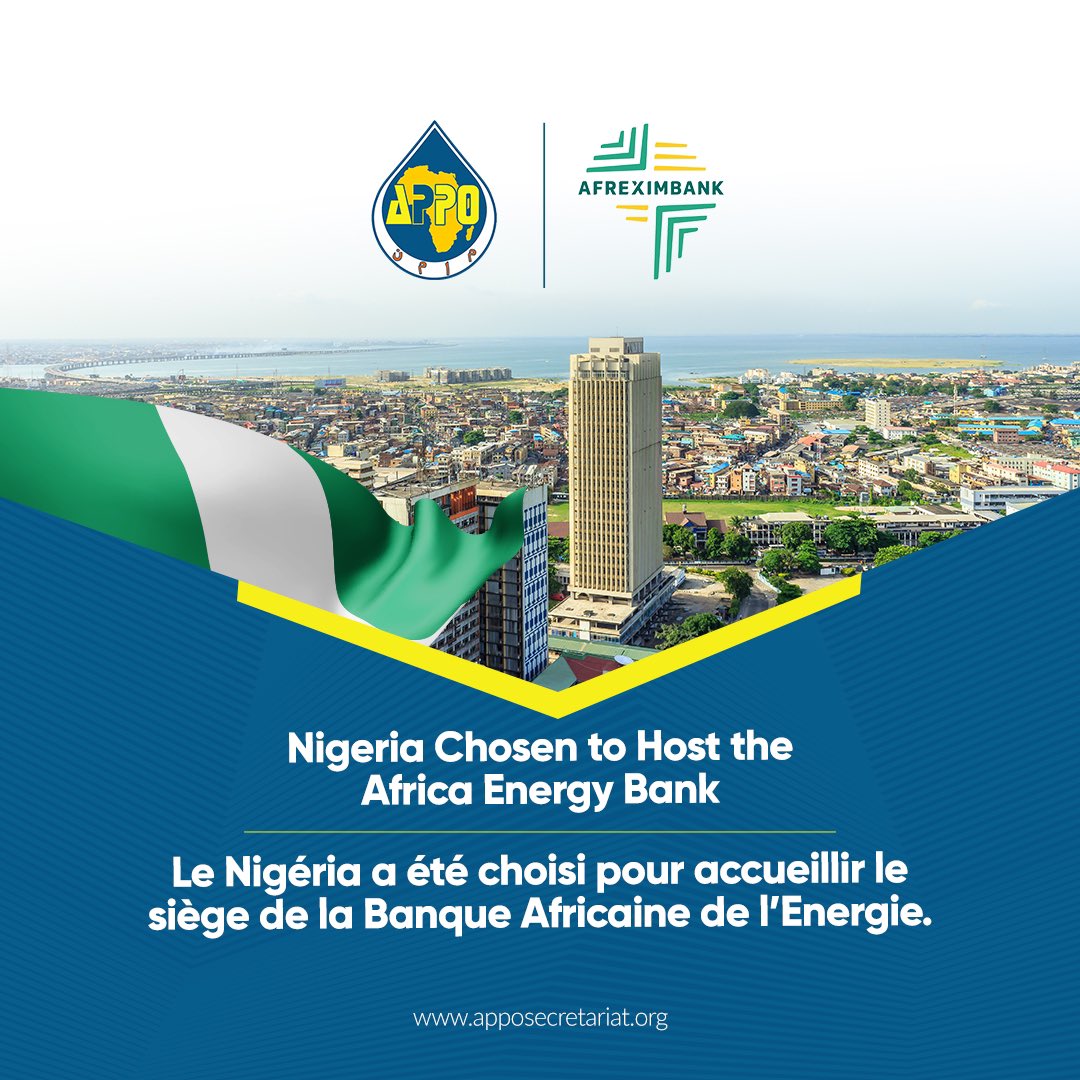
By Adedapo Adesanya
The African Energy Bank (AEB), a pan-African financial institution established to mobilise capital for the continent’s energy development and strengthen regional energy value chains, will begin operations in June 2026.
This came as Nigeria officially handed over the headquarters of bank at a ceremony held on the sidelines of the ongoing Nigeria International Energy Summit (NIES).
The president of the African Petroleum Producers’ Organisation (APPO) and Côte d’Ivoire’s Minister of Mines, Petroleum and Energy, Mr Mamadou Colibaly, praised Nigeria for its leadership in bringing the initiative to fruition, as he disclosed the bank was expected to commence operations in four months’ time.
“We are committed to launching this bank no later than June. I sincerely thank our partners for providing the headquarters and office that make this take-off possible. The African Energy Bank represents Africa’s commitment to finance, develop, and secure its own energy future by Africans, for Africans,” he said.
The African Energy Bank is a joint initiative of APPO member states and the African Export-Import Bank (Afreximbank), established to mobilise domestic and regional capital for Africa’s energy infrastructure, reduce dependence on external financing, and align energy investments with the continent’s long-term development and industrialisation agenda.
While performing the handover, Nigeria’s Minister of State for Petroleum Resources (Oil), Mr Heineken Lokpobiri, said the country had fulfilled all its responsibilities as host nation.
“Nigeria has met every obligation as host. The headquarters is ready, strategically located, and fully equipped, and we are prepared for immediate take-off.”
The ceremony highlighted a growing consensus among African leaders on the need for the continent to take greater ownership of its vast natural resources.
Through tailored financial instruments, the bank is expected to support projects across the energy value chain, including exploration, refining, renewable energy integration, and local content development, with a focus on job creation and economic value addition.
The African Energy Bank has been touted as not just another financial institution, but a strategic pillar in Africa’s quest for economic independence and long-term energy security
The African Energy Bank is a pan-African financial institution jointly promoted by APPO member states and Afreximbank to provide tailored financing solutions for energy projects across the continent, strengthen regional energy markets, and support sustainable development through improved access to capital.
Banking
Polaris Bank Assures MSMEs Access to Finance for Non-Oil Exports

By Modupe Gbadeyanka
Entrepreneurs in the micro, small and medium-sized enterprises (MSMEs) sector in Nigeria have been assured access to finance by Polaris Bank Limited to strengthen the country’s non-export ecosystem.
The financial institution gave this assurance at the NAHCO and NACCIMA Export Group Programme themed Breaking Barriers: Helping SMEs Navigate Export Procedures for Agro Products and Other Commodities.
An executive director at Polaris Bank, Mr Chris Ofikulu, underscored the national importance of export diversification and the central role of MSMEs in building a resilient economy.
He noted that reducing Nigeria’s dependence on oil revenues requires coordinated action across the public and private sectors to strengthen non-oil exports, particularly within agro-exports and commodity trade.
“Expanding non-oil exports is not optional; it is a strategic imperative for building a resilient, inclusive and competitive Nigerian economy. SMEs, particularly in agro-exports and commodity trade, hold the key to unlocking our true comparative advantage.
“Polaris Bank remains committed to providing the finance, advisory support and partnerships required to help them scale confidently and compete globally,” Mr Ofikulu said.
Also addressing stakeholders, the Team Lead for Trade Services at Polaris Bank, Mr Olaleye Arinola, highlighted the importance of removing trade and payment bottlenecks that limit exporter competitiveness and cash flow, emphasizing the lender’s focus on building confidence and certainty into the export process through practical financial and advisory support.
“Exports cannot grow if finance and payments remain obstacles. At Polaris Bank, our focus is on removing friction from international trade by ensuring SMEs get paid faster, safer and with greater certainty through efficient trade finance, secure cross-border payments and hands-on guidance across documentation, FX and compliance,” Mr Arinola said.
It was gathered that the one-day engagement brought together regulators, industry stakeholders, exporters and trade bodies to advance practical solutions for easing trade barriers, improving access to finance and building a more resilient and diversified Nigerian economy.
The programme also marked the formal introduction and launch of the NACCIMA Export Group and the NAHCO Export Support Centre for MSMEs in Nigeria, creating a structured platform for exporters to access trade facilitation services, logistics support, regulatory guidance and financial solutions across the export value chain.
The engagement also focused on addressing structural challenges confronting exporters, including infrastructure gaps, port inefficiencies, logistics constraints, standards and certification requirements, and policy consistency.
Participants emphasized the need for stronger public-private collaboration among government agencies, trade bodies, financial institutions and logistics partners to simplify export procedures and improve market access for Nigerian SMEs.
As part of its partnership with the business and trade community, Polaris Bank unveiled a Dedicated Help Desk for NACCIMA members, designed to provide direct access to trade finance and payment support, fast-track resolution of export-related enquiries, and personalized advisory services on FX documentation and regulatory compliance.
Banking
Moniepoint Processes N412trn Transactions, Disburses N1trn Loans in 2025

By Adedapo Adesanya
Nigerian financial services firm, Moniepoint Incorporated, processed N412 trillion in transaction value and disbursed more than N1 trillion in loans to small businesses in 2025, as the company continues to grow Nigeria’s expanding retail payments and credit structure.
The company said it handled more than 14 billion transactions during the year and now powers about 80 per cent of in-person payments nationwide, underscoring the increasing concentration of payment flows through a small number of fintech platforms.
Moniepoint also averaged 1.67 billion monthly transactions in 2025 and grew its card user base by 200 per cent, with its cards being used 1.7 million times daily.
The organisation also processed over 500,000 data renewals daily, while customers spent N90 million ($64,264) daily at gyms.
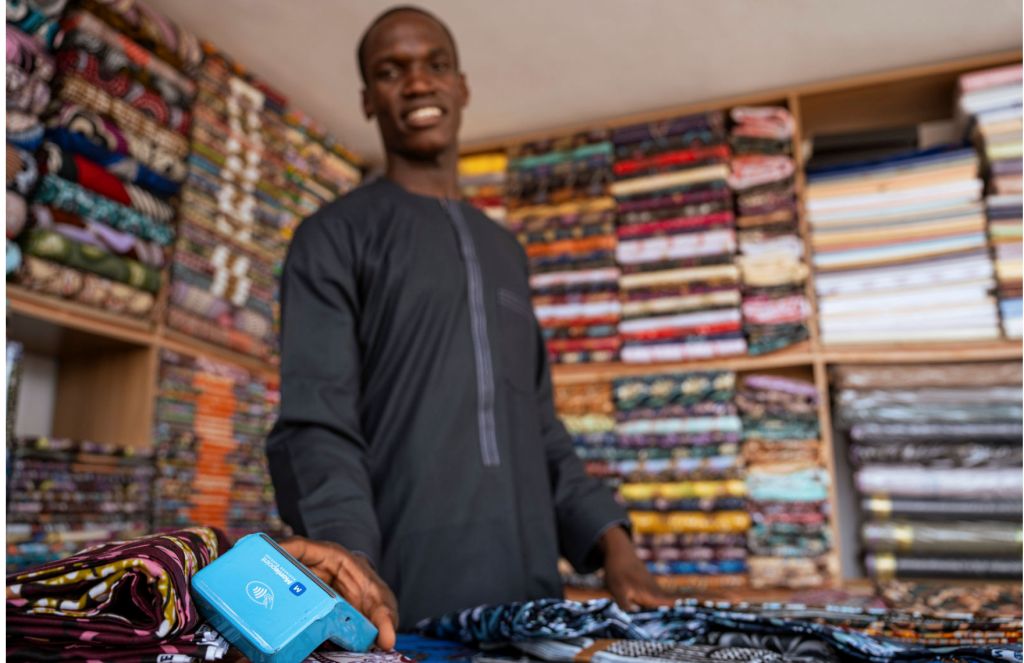
Moniepoint’s scale reflects a broader shift in Nigeria’s payments landscape, where point-of-sale terminals and digital transfers have become central to everyday commerce, from neighbourhood shops to open-air markets.
Founded in 2015, Moniepoint has evolved from a backend technology provider into Nigeria’s largest merchant acquirer, offering payments, banking, credit, foreign exchange and business management tools to more than 6 million active businesses.
The company said it expanded lending to small businesses that are often excluded from bank credit, disbursing more than N1 trillion in loans through its microfinance banking unit in the year under review.
“Our focus has been on building infrastructure that works for how businesses actually operate,” said Mr Tosin Eniolorunda, Moniepoint’s founder and chief executive, pointing to the prevalence of informal trade in Africa’s largest economy.
In 2025, Moniepoint became a unicorn after it raised more than $200 million in a Series C funding round backed by investors including Development Partners International, Google’s Africa Investment Fund, Visa, the International Finance Corporation and Verod Capital, providing capital to scale its payments and financial services operations.
Beyond acquiring, the company said its switching and processing subsidiary, TeamApt Ltd, secured licences from Mastercard and Visa to operate as a processor and acquirer, enabling it to handle international card payments and provide switching services to other businesses across Africa. Its web payments gateway, Monnify, processed N25 trillion in transactions during the year.
Recently, the Central Bank of Nigeria (CBN) upgraded Moniepoint’s microfinance bank to a national microfinance bank licence, allowing it to expand its footprint across the country and broaden the range of products that it can offer.

-

 Feature/OPED6 years ago
Feature/OPED6 years agoDavos was Different this year
-
Travel/Tourism9 years ago
Lagos Seals Western Lodge Hotel In Ikorodu
-

 Showbiz3 years ago
Showbiz3 years agoEstranged Lover Releases Videos of Empress Njamah Bathing
-

 Banking8 years ago
Banking8 years agoSort Codes of GTBank Branches in Nigeria
-

 Economy3 years ago
Economy3 years agoSubsidy Removal: CNG at N130 Per Litre Cheaper Than Petrol—IPMAN
-

 Banking3 years ago
Banking3 years agoSort Codes of UBA Branches in Nigeria
-

 Banking3 years ago
Banking3 years agoFirst Bank Announces Planned Downtime
-

 Sports3 years ago
Sports3 years agoHighest Paid Nigerian Footballer – How Much Do Nigerian Footballers Earn






